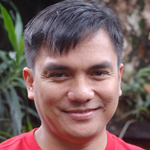 Crime role in politics merits examination as the Philippines regresses to a kamay na bakal (iron fist) presidency that today is gaining the appearance of strength through executive orders to summarily and extra-judicially execute suspected criminals.
Crime role in politics merits examination as the Philippines regresses to a kamay na bakal (iron fist) presidency that today is gaining the appearance of strength through executive orders to summarily and extra-judicially execute suspected criminals.
Rapid normalization of “coffin policing” at the national level during the first days of the Duterte presidency has been welcomed with praise; newsfeeds of criminalized dead bodies have not mobilized protestors.
Examining the politicization of crime and the criminalization of politics in the Philippines can elucidate crime’s foundational role in shaping the Duterte presidency.
Previous studies have defined the politicization of crime as a process through which politicians use crime control programs and law and order leadership to increase their electability and popularity (Fairchild and Web 1985, Oliver 2003). The Institute of Peace and Conflict Studies (2004) characterizes the criminalization of politics as the active involvement and successful participation of corrupt leaders, alleged murderers, racketeers, and kidnappers and other criminal elements in political races.
Politicization of crime
Numerous Philippine politicians have effectively used “War on Crime” rhetoric to win election as mayor, councilor, governor, senator and now president. Crime is rich in political capital; crime as an issue can represent the anxieties of all while providing “little to no opposition—as no one is for crime” (Oliver 114). Anybody who opposes the war on crime easily can be labeled a supporter of criminals. President Duterte has raised the costs of that stance dramatically.
President Rodrigo “Digong” Duterte has succeeded as a crime warrior politician by mining public discontent with a slow, weak, and corrupt justice system that favors economic and political power. He has brought profane words to an otherwise elitist political narrative – “putang ina mo” (mother fucker) and “papatayin kita” (I will kill you) – words that symbolize the frustrations of Duterte supporters with the ever-playable justice system. In spite of the Philippine media’s testy relationship with Duterte, its sensationalized street crime reporting has constructed a crime epidemic that is foundational to Dutertism, the new president’s political strategy of transforming crime victimization as a national paranoia into political capital.
Responding to demands for peace and order among his middle- and upper-class and overseas Filipinos, Duterte has promised to deliver a more retributive national justice. He has attacked the previous administration for its impotence in protecting citizens from robbery, scams, hostage-taking, massacres, rape and drug-related violence while portraying himself as a punisher ready to use lethal extrajudicial means to eradicate criminal elements.
Criminalization of politics
Filipinos known as murderers, rapists, kidnappers, rebels, assassins, extortionists, warlords, drug-lords, gambling-lords and torturers have participated successfully in contemporary contests for political office.
In the 2013 national election, former coup plotters Antonio Trillanes IV and Gregorio Honasan won election to the Senate, and Joseph Estrada, who exited the Philippine presidency under charges of plunder, was elected mayor of Manila.
In the 2010 elections, Anwar Ampatuan, detained for his links to the Maguindanao massacre of 58 Filipinos, including 34 journalists, won the post of vice mayor in Shariff Aguak, Maguindanao; his wife was elected mayor. Vincent Crisologo, convicted of arson and murder, was reelected to represent the 1st district of Quezon City in Congress. Former President Gloria Macapagal-Arroyo (2001-2010), under hospital arrest for long-standing charges of corruption, bribery, human rights violations and cheating in the 2004 presidential election, was elected Congresswoman for the 2nd district in Pampanga in 2010. Former
President Ferdinand E. Marcos began and ended his political career in a blaze of court trials for heinous crimes and political controversies; his wife, Imelda Marcos, is now a congresswoman, his daughter is a governor, and his son is a senator who came very close to winning the 2016 vice- presidential election.
These examples represent a small portion of the many successful Philippine criminal politicians who began or furthered their political careers by capitalizing on their own crimes.
According to Boorhiss (2007), criminal charges do not keep Philippine politicians out of politics; delays arising from slow criminal justice processes, often abetted by political pressures, reduce the effects of convictions on resourceful politicians.
Criminal politicians seem to know that how they play their roles during arrests, trials, and incarceration is critical to winning the support of “the people,” or “the masses.” For example, Joseph Estrada’s mug shot photo and his arrest incited a revolution. Calculated, scripted and dramatic performances by politicians on every stage of criminal justice processes ensures that the legal assault on their crimes will heighten their attractiveness to supporters. Electoral success signals approval of their misconduct as an exercise of power.
The elite who use their wealth, education, connections, and electoral machinery to ease the transformation of crime into political capital are assisted by a mass media that leads Filipinos to imagine their nation as comprised of criminals by habitually showcasing crime and violence.
Two of the Filipinos I have interviewed express this popular view in stating, “All the politicians are corrupt”; “Give me the name of a politician who did not use government money for his own interests.” And as the criminalization of politics and politicization of crime on stages of the justice system and mass media supersede undertaking economic and political reform, the poor become the threatening faces of crime and are left behind to serve not only as political producers and consumers but also as targets in a bloody war for political capital. – Rappler.com
Christopher N. Magno is an associate professor in the Criminal Justice Program at Gannon University. He earned his Ph.D. in Criminal Justice at Indiana University, Bloomington, his Master's in Sociology at the University of the Philippines, Diliman. His teaching and research specializations include urban crime, politics of crime, and law and society.